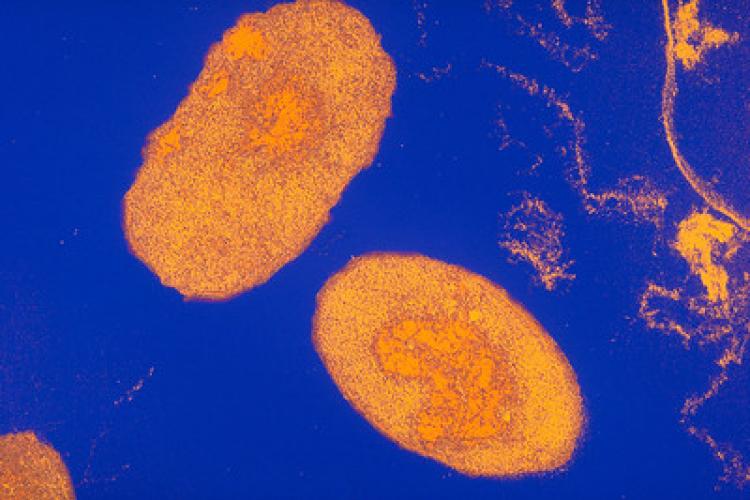EU-funded researchers hope a greater understanding of interactions between pertussis bacteria and the immune system, together with a toolkit for testing new vaccines, will help prevent whooping cough disease and deaths in babies worldwide.

Whooping cough, also known as pertussis, is a highly contagious infection of the respiratory tract caused by the Bordetella pertussis bacteria. In low-income countries, it is a major cause of infant mortality, particularly in babies too young to be vaccinated.
Despite widespread vaccine coverage, the number of cases of pertussis reported in high-income countries has increased, with fresh outbreaks occurring around the world. This appears to be linked to many factors, including improved disease awareness and better diagnostic tools. Resurgence may also be partly related to a rapid decline in vaccine-induced protective immunity and to the fact that some of the vaccines currently used do not induce life-long protection.
The EU- and industry-funded PERISCOPE project aims to expedite the development of a new generation of vaccines by better understanding the immune responses that mediate long-lasting protective immunity against B. pertussis.
A new tool developed by PERISCOPE researchers based at the University of Southampton in the UK – the ‘human challenge model’ – has already revealed that the bacterium can lie dormant for some days in the nose and throat of healthy adults, even if they have already been immunised.
‘PERISCOPE’s partners, in particular Sanofi Pasteur and GlaxoSmithKline – the two world leaders in whooping cough vaccine manufacturing – are already making use of the information and technologies generated by the project. Their aim is to inform and accelerate the development of their own pertussis vaccine candidates,’ explains project coordinator Ronald de Groot of Radboud University in the Netherlands.
‘Public sharing of this information is also ongoing, so the wider pertussis research community can also benefit.’
Seeking out the signature
The team has developed innovative tools and approaches which will be used to test novel vaccine candidates. These include a set of 14 new laboratory tests to study how the immune system responds to vaccination to help prevent infection with B. pertussis. Some of these tests are based on cutting-edge technologies that can study the genetics and image the activity of individual cells of the immune system, while others are applicable to routine large-scale testing in clinical trials.
The tests are already in use in four clinical studies in Europe and The Gambia, Africa. These studies are increasing researchers’ understanding of the immune response to B. pertussis vaccination in infants, children, adults and pregnant women. Sophisticated computational analyses of the results are helping PERISCOPE researchers to identify the ‘golden immune signature’ which novel vaccines need to generate in order to provide longer-lasting protection against whooping cough.
Boosting vaccine development
‘In the mid- to long-term’, says de Groot, ‘the tools and laboratory capabilities we’ve developed to study pertussis vaccination will provide insights into how to develop new vaccines and will support and accelerate the development of new vaccine candidates in Europe.’
At the moment, 47 researchers are being trained by PERISCOPE, alongside 10 of the project partners either by using further funding for pertussis research or by pursuing other collaborative work, based on the results generated during the project. PERISCOPE is funded by the Innovative Medicines Initiative (IMI); through IMI, it receives support from the EU, the European pharmaceutical industry, and the Bill and Melinda Gates Foundation.
Project details
- Project acronym: PERISCOPE
- Participants: Netherlands (Coordinator), UK, Ireland, France, Czechia, Switzerland, Spain, Belgium, Germany, Finland
- Project N°: 115910
- Total costs: € 29 926 682
- EU contribution: € 21 000 000
- Duration: March 2016 to February 2021
See also
Source: European Commission, Research and Innovation Information Centre
